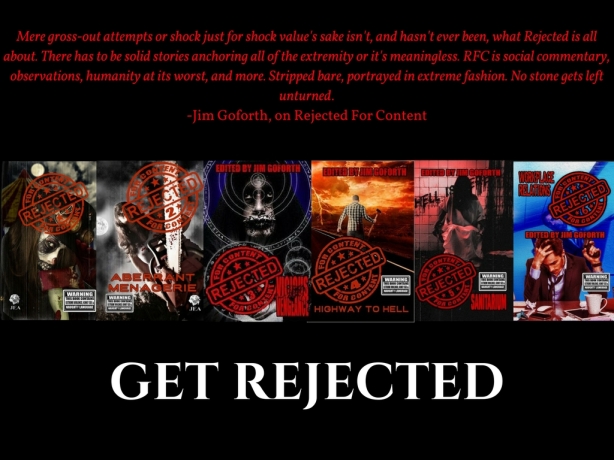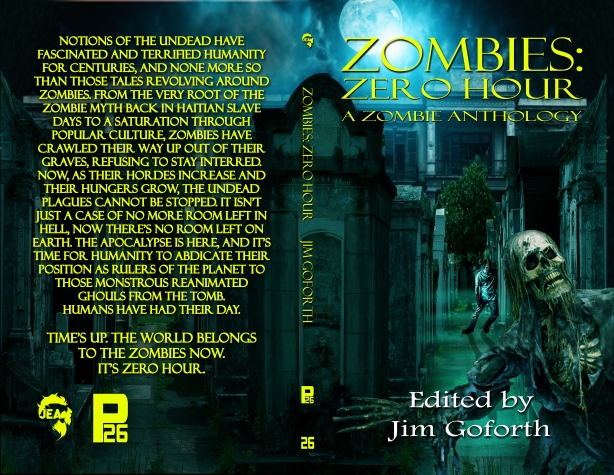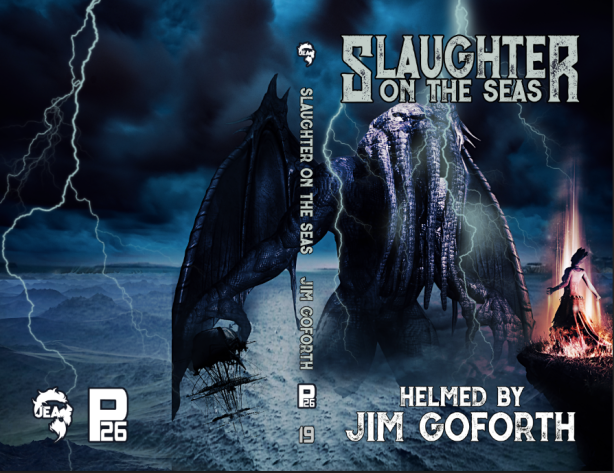This was an article I knocked up for JEA’s Newsletter a few months back, so in the interests of sharing it with anybody who might not have caught it then, I’ll publish it here too.
SO YOU WANT TO PUT TOGETHER AN ANTHOLOGY?
So you want to put together an anthology?
Sounds like a fairly simple straightforward proposition? Well, actually, yes and no.
Assembling an anthology seems to be one of those activities with polarising opinions. Some folks absolutely love it, while at the other end of the spectrum are those who swear they would never do it again. I’m well entrenched in the former camp, but I’ll go into my various experiences with anthologies a little later on.
For now, we’ll deal with basics, and what could be more basic than understanding the terminology, or in fact, exactly what an anthology is.
I’m know I’m not alone in being a little astounded by just how many folks-and here I’m talking about actual authors-who don’t seem to know the difference between an anthology and a collection. This happens with alarming regularity across social media and elsewhere, with somebody making a grand announcement that they have their own anthology coming soon, or such and such is writing stories for their anthology, or I’m putting together a pile of my stories for my anthology. Closer inspection of course, reveals that what said individual is actually referring to is a collection, given all those stories which will be appearing in that book are penned by a solitary author.
An anthology is made up of several stories contributed by myriad authors, while a collection is comprised of several stories all written by just one author. Fairly simple notion, yet one which seems to not be as widely known as it should be.
Then there are those books which feature a fairly heavily weighted percentage of stories by one author, yet also include a few stories from different folk. Technically an anthology per se, but pushing the boundaries of the simple definition there.
Anyway, that’s neither really here nor there; the main point here is if you’re aiming to assemble an anthology be mindful of just what constitutes it. If it is to be made up of all your own stories, well, that’s not an anthology at all. Refer to above points.
I’m no authority on anthos, so don’t take anything I make mention of here as the gospel (except that part about knowing the difference between anthologies and collections-that is the gospel. Can’t expect folks to take you seriously if you don’t learn that distinction); this is more a case of highlighting some of the challenges one might encounter when dealing with them.
Aside from what I’ve already hammered home pretty solidly above, there are no hard and fast rules. Story length is variable, overall book length is variable-that’s all up to the discretion of the individual in charge. Genre, theme, open theme, all of that is wide open to interpretation, unless one has a very clear vision of what they want to present in their particular anthology.
In the event you are specifically searching for submissions and pieces that address a very particular theme, and anything which doesn’t match this criteria won’t be looked at, it’s best to make that painfully clear in your open call. This also relates to genre. If you’re planning on sticking to just the one, make sure that is what you state-again, there are no rules existing that preclude you from having no theme whatsoever and taking stories from every genre under the sun; it might just be a little bit of a harder sell. This is only personal opinion, but an open theme, open genre anthology isn’t something I’d delve into-too broad a scope, no specific defined audience there.
I’m not going to explore the whole accepting submissions, the less fun part of rejecting pieces and providing critique or helpful reasons why certain stories were rejected, or contracts-all of that in itself would be enough to comprise another article-but I may do a follow-up piece later on which does cover all these bases. All of that is part of the process, and perhaps tosses up some of the reasons people hate the compiling of anthologies and wouldn’t do it again for the life of them. Which is perfectly understandable. It can be a challenging process indeed, but like I mentioned earlier, I’m one of those weird folk who dig all of the various elements which are involved.
In any case, once the aforementioned things are all dealt with and in place, one of the most important things with getting your anthology right is establishing a Table of Contents (hereafter referred to as a TOC). That might seem like a no-brainer, but it isn’t merely a case of tossing stories in any which way, or just whacking them up in the order you received them, or something along those lines.
Different people have their different ways of constructing TOCs, but rest assured, the way you arrange this could either make or break your book, and either ensure readers continue reading or pass it up in favour of something else.
This has been well-established before by many others, so I’m just reiterating what has been previously addressed, but I’m a firm advocate of opening up your anthology with one of the strongest stories, if not the strongest, in the arsenal of accepted pieces. I stand by this, whether one is an antho virgin, making their first foray into the assembly of one, or the book you’re constructing is the latest instalment in a long-running successful series. Granted, the latter type might stand more chance of being read by an already established fanbase, but kicking it off with a great story is just going to further cement desire to read on and explore the rest of the stories. As for the former, don’t cruel your chances to gain that readership and build on it, by slapping a TOC together haphazardly and placing what is perhaps a weaker story as the opener.
I’m sure folks have elected to construct their TOC deliberately as such, building up to their best stories in an escalation of quality, tension, or what-have-you depending on genre, but personally I’d never be inclined to go that way. Considering the first few pages of any book are important, you might be able to get away with that with a novel, but not so much anthologies. That kind of slow-burn approach usually leads to story skipping, and ultimately book skipping all together.
And by the same token, don’t do the same in reverse. Having all your best stories gradually winding down until the end of the book features less remarkable ones is liable to engender a negative impact as well.
Before I proceed, I’ll just slip this in here. In an ideal situation, all of the stories selected for your anthology will be stellar pieces, top shelf stuff and whatnot, but in reality, some things are always going to stand out more or appeal to readers most of all. Of course different readers have different tastes, so what one thinks is the best tale may not be regarded as such by another person; it’s all a matter of opinion. Furthermore, if you’ve run one of those anthologies which wasn’t one with a deadline, but rather an open-until-full situation, then you’re left with whatever stories you okayed to fill up the book, and in the grand scheme of things, these might not essentially be the best of the best. There’s a high chance you’ll be contending with a few stories which though solid and well-suited to the particular theme you sought, might fall into that unremarkable category. Constructing your TOC in a certain way to highlight your strengths and distract from any potential weaknesses is a skill you’ll be wanting to cultivate.
Now, back to the last item of the TOC. You want to kick the book off with a bang, and you want to do likewise at the end. An equally strong story as your opener, or your second strongest, or if you so choose, even the best weapon you have in the armoury should be the concluding number. Leave your readers with something memorable, something ticking over in their heads. Hook them right in with the opener, leave them reeling with the closer, and between these two big bookends, keep things interesting and well thought out.
How you do that is entirely up to you, but it could be a case of somewhat similar stories following a logical progression; or it could be starkly different tales chasing one another like some deliberate paradox. Perhaps, if like me, you choose to compile anthologies in the horror genre, you might choose to alternate between shocking and subtle from story to story, juxtaposing brutality with more understated finesse, lulling a reader into a false sense of security before unloading another balls to the wall slugger that leaves them shell-shocked. It is an art form of sorts, and for me, one of the most challenging, yet most rewarding parts of creating an anthology.
There are no sure-fire methods or secrets to ensuring a certain anthology is going to be a bona fide hit, or a big seller, or a massive success. Well, there are certainly ways of shoring up the chances of the book’s success, but even then that is no guarantee. Here I’m referring to bolstering the ranks of your TOC by the possible inclusion of a big name author or more in your selected genre, whether they elect to write something new for it or graciously allow the inclusion of a reprint, but not everybody putting together an anthology is going to be afforded that luxury. Nor is it a guarantee that the name alone will be enough to pull in prospective readers, especially if a reprint is involved. It’s a fair bet diehard fans of said big name author have already come into contact with that story and buying a book on the strength of that alone may not be enough. It’s a gamble, it’s a lottery, it’s a risk.
Since I dwell in the horror domain, and have zero experience with how things operate in say, romance or science fiction or other types of genre, I can’t really wax lyrical on what sort of things are big in their anthology sphere, but I’d imagine, just as in horror, one never knows what is going to be hit and what will be a miss.
Horror itself is a funny entity in that there will be no guarantee in what is going to take off like a rocket anthology wise. Some things seem to be constantly in vogue, while others wax and wane, though innumerable factors may determine whether even those things which have eclipsed trend status and slipped into mainstream acceptance succeed or falter. Once more, if you’ve elected to make an anthology revolving around one of the most popular subjects imaginable, but have a line-up of complete unknowns or newcomers, that’s a gamble. Stacking one side (the theme), while being light on the other (the personnel) is a risky approach which may or not pay off, and same goes for reversing the scenario. Either way, it’s up to the individual to explore and discover what works.
I’ve personally been involved in anthologies in various capacities that represent both sides of the coin; the successful, and those that slip beneath the surface without making much of a ripple at all.
Most folks who know me will be aware that I run a little anthology series which goes by the name of Rejected For Content. This particular entity has been an enormous success, and I’m currently in the process of editing volume number six, such has been the favourable reception to what has pretty much become an unstoppable juggernaut. In its inception, like most ideas kicked around, this was a gamble, an experiment. However, it was a successful one. It dropped at a perfect time into a sea of readers keen to be immersed in the extreme, the taboo, the affronting and sometimes offensive, and from a brainstorming conversation between a handful of folk it went from strength to strength. I wouldn’t hazard a guess as to what else I might have a hand in that would be likely to replicate that success, but inevitably there will be varying degrees of success and failure along the way, and I look forward to that. As should anybody else launching themselves into the world of anthologies. What worked for Rejected For Content won’t necessarily work elsewhere. Its emergence at a time when folks were desiring new levels of extremity assisted it to the point where it now has a hardcore fanbase (and naturally, the opposite end of the scale).

Yes, extreme horror has been on the rise for a little while now and continues to be rising, but invariably, like the omnipresent zombies as a theme, it will reach saturation point and folks may start looking around for something else to alleviate that flood of extremity. Nobody has the ability to predict what that something else is going to be, so the best bet in regards to creating your own anthologies is not to follow the same formula and go for the common and overused themes in the hope they’re going to reap rewards, but rather think outside the box a little. Find that something else, even if it is left of centre. As it’s been well-established over the course of this article, assembling an anthology is one hell of a gamble regardless of theme. So rather than borrow from oft-used ideas or try to replicate the success of previous offerings by riding too close to what you suspect made them the hit they were, go for that little something different. The market can be fickle, riding trends isn’t essentially going to reap any reward, but that something different might just be precisely what the market is looking for.
Now, having said that, and having also referred to zombies earlier, I’ll make mention of an anthology experience that tends to go against some of what I just said.
As you might or might not be aware, J. Ellington Ashton Press has been rolling out a series of books in a massive creation that is known as Project 26. This is a collective of books comprised of anthologies, novellas, and novels, covering each letter of the alphabet, coming out in lots of four in completely random letter order.
Among these has been the anthology Zombies: Zero Hour which I took on-board as editor. The particular topics/themes of each book in the project were decided and established quite some time ago, and at the time, I’d have not elected to run with the undead subject, for no other reason other than the fact that they are often over-represented in horror fiction. When the original editor for this book dropped out, I opted to take over it and another one of the P26 anthologies also lacking an editor. Most surprising to me has been the fact that of the two anthologies, and indeed some of the others, the zombie-centric book has been most successful. This either goes to show, that I know absolutely nothing about what is likely to sell, or more likely, that as I’ve mentioned a few times around various places, that zombies are now one of those things which have surpassed mere trend status and comfortably settled their rotting corpses into the mainstream, where pockets of undead fiction fans will always be inclined to read about them. However, that in itself is still no guarantee that a zombie-based anthology is going to be a winner. The books comprising Project 26 have come out with plenty of publicity and attention, alongside teasers and information to prepare readers, excite them and make them look forward to what might be releasing next, so relying on just the notion that it’s zombies selling because zombies sell isn’t really going to push a book far.
Putting together an undead anthology with or without established names then letting it loose without any fanfare or press release, or promotion of any sort, and then expecting it to be a chartbuster because, hell, it’s zombies, isn’t realistically going to achieve much of anything. Expectations of success and reality are two vastly different things.


I’ve had the great fortune to helm anthologies that have garnered decent levels of success, and I’ve also been able to appear several times in anthologies alongside some of the absolute giants of the horror genre, which is an honour and a joy that never gets old, and I’ve also had stories appear in niche anthos that have had very minimal readership, some to the point where they’re no longer in print. Some of the latter were based around themes which I certainly dug, and imagined many others would have enjoyed too, but for whatever reason, the books themselves just didn’t take off at all. All of which demonstrates that there is no guaranteed success, there is no secret that can be unlocked.
So you want to put together an anthology? Go ahead and throw yourself into it. Hopefully some of this will prove beneficial to you. And best of luck.
Jim Goforth, 2017
[…] via SO YOU WANT TO PUT TOGETHER AN ANTHOLOGY? […]
I actually read this report and it is very informative.
[…] Bonus! Check out Jim Goforth’s post So You Want to Put Together an Anthology? […]